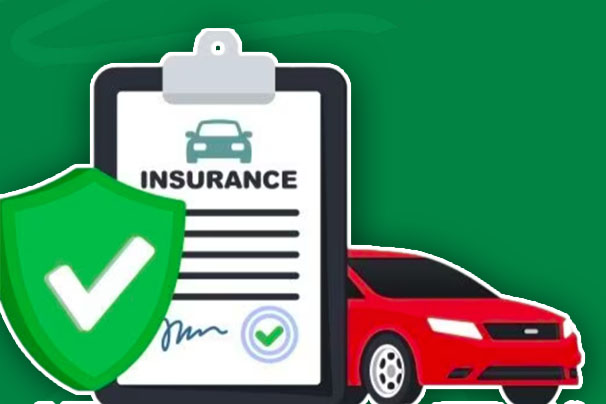As a car owner, it may be difficult to navigate the complexities of car ownership and insurance. Various questions about insurance and vehicle registration come up frequently and recognizing this dilemma that people are facing, we are going to shed more light on how possible it is for car insurance ad registration to be in different names.

There are some scenarios where your car insurance and registration documents may appear with different names. For instance, when a family member drives a vehicle you own or when the car is financed by one person and the insurance is held by another. Several other things can also contribute to the possibility of car insurance and registration being in different names. Read along as we provide valuable insight on car insurance, ownership, and registration.
Can Your Car Insurance And Registration Be In Different Names?
Yes, car insurance and registration can be in two different names. A lot of states in the U.S. allow drivers to purchase car insurance coverage even when there’s a different name on the registration document.
The process is often complex as the insurance company has to fully understand. And decide who will make premium payments for coverage. The only state where the name of the registration of a vehicle has to match with that on the insurance document is New York.
While it is possible to have a completely different name on your car registration. And insurance, the likelihood of getting car insurance largely depends on the insurance company you are buying the coverage from.
Reasons for Car Insurance and Registration with Different Names
As mentioned before, there are several reasons why car insurance and registration may be in different names. In this section, we will be discussing some of the;
Your Family Member Is the Primary Driver Of Your Car
In a situation where a family member or close friend is the primary driver of a car you own. It could ultimately lead to a separate name on the registration of the car and the insurance policy. The person who is the primary driver of your car may decide to buy a car insurance policy in his/her name which would be entirely different from the one on your car registration.
On the flip side, your family member or friend does not necessarily need to purchase a policy in their name if the car is only used frequently.
Your Child Buys an Insurance Policy for Your Vehicle
There are cases where parents allow their children to purchase a car insurance policy on their behalf. When applying for and purchasing the policy, your child’s name will be the one to appear on the policy document.
Nevertheless, some insurance companies often have their terms when it comes to insuring a car with a different name other than the one on the registration document. Hence, it is important to make inquiries from the insurer on how to go about it.
You Add Your Child and Their Vehicle to Your Policy
When there’s a teen driver in the house, it often makes sense to add them to your car insurance policy. Some parents find it cost-effective to add their child and the vehicle they drive to their insurance policy. If you have a teen driver with no traffic violations, it is possible to unlock lower premiums. Notwithstanding, it is imperative to make sure that the policy specifically names every driver. In the event of an accident, your child may not be covered if they are not legally listed on your policy, which may leave you financially vulnerable
Disadvantages of Car Insurance and Registration with Different Names
Although it is possible to have a separate name on your car insurance and registration, it is important to consider some of the potential disadvantages. Here are some of them;
- Increased paperwork.
- Higher premiums.
- Liability issues.
- Coverage may be denied if the name on the registration does not match the one on the policy.
- Claims may be denied if the primary driver is not listed.
Alternatives for Insuring a Car That Is Not In Your Name
Rather than having two different names on your car insurance and registration, there are alternatives you can explore, they include the following;
Add The Owner’s Name to the Insurance Policy
One of the easiest ways to insure a vehicle that was not registered with your name is by including the name of the owner in the insurance policy you are purchasing.
Let’s say you are the primary driver of a car that belongs to your friend. Or family member, including their name on the insurance policy, makes the process a lot easier. You can as well as then to add your name to the vehicle’s insurance policy, if they have one, to ensure that you are covered in the event of an unexpected situation.
Ask the Vehicle Owner to Transfer Ownership to You
You can also ask the owner of the vehicle to transfer the vehicle’s title to you. In the process of transferring ownership of a car to another person, names will be changed. So, matching the name on your insurance with that of the car’s registration has already been solved.
Purchase a Non-Owner Insurance Policy
Another strategic way to insure a vehicle that is not in your name is by purchasing a non-owner insurance policy for yourself. This ensures that you are adequately covered even if you are not the owner of the vehicle you drive. If you were to get into an accident, your non-owner insurance policy will offer coverage for expenses and damages incurred.
Conclusion
Although having separate names for your registration and auto insurance is possible, doing so carries several inconveniences. It’s important to carefully analyze the implications of having separate names on your car insurance and registration, from potential coverage gaps and liability difficulties to higher premiums.
It is advisable to keep the names on your insurance policy and registration the same to guarantee that you and your car are properly covered. If there’s a situation that warrants separate names on your car insurance and registration, speak with your insurance provider.



